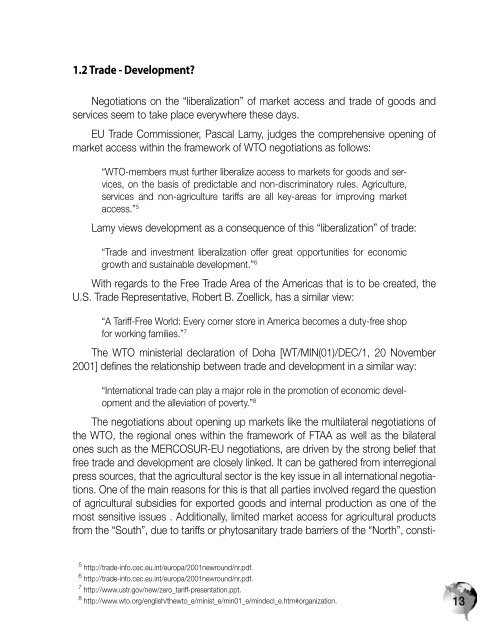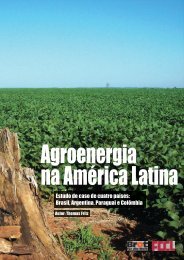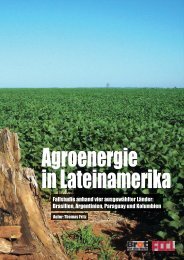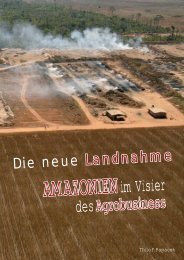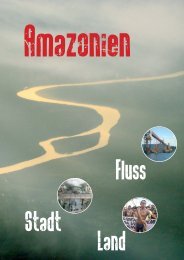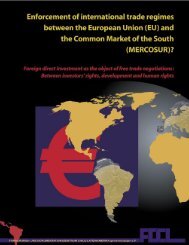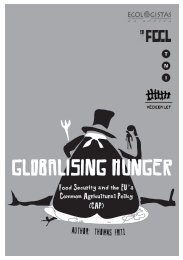Download - FDCL
Download - FDCL
Download - FDCL
You also want an ePaper? Increase the reach of your titles
YUMPU automatically turns print PDFs into web optimized ePapers that Google loves.
1.2 Trade - Development?<br />
Negotiations on the “liberalization” of market access and trade of goods and<br />
services seem to take place everywhere these days.<br />
EU Trade Commissioner, Pascal Lamy, judges the comprehensive opening of<br />
market access within the framework of WTO negotiations as follows:<br />
“WTO-members must further liberalize access to markets for goods and services,<br />
on the basis of predictable and non-discriminatory rules. Agriculture,<br />
services and non-agriculture tariffs are all key-areas for improving market<br />
access.” 5<br />
Lamy views development as a consequence of this “liberalization” of trade:<br />
“Trade and investment liberalization offer great opportunities for economic<br />
growth and sustainable development.” 6<br />
With regards to the Free Trade Area of the Americas that is to be created, the<br />
U.S. Trade Representative, Robert B. Zoellick, has a similar view:<br />
“A Tariff-Free World: Every corner store in America becomes a duty-free shop<br />
for working families.” 7<br />
The WTO ministerial declaration of Doha [WT/MIN(01)/DEC/1, 20 November<br />
2001] defines the relationship between trade and development in a similar way:<br />
“International trade can play a major role in the promotion of economic development<br />
and the alleviation of poverty.” 8<br />
The negotiations about opening up markets like the multilateral negotiations of<br />
the WTO, the regional ones within the framework of FTAA as well as the bilateral<br />
ones such as the MERCOSUR-EU negotiations, are driven by the strong belief that<br />
free trade and development are closely linked. It can be gathered from interregional<br />
press sources, that the agricultural sector is the key issue in all international negotiations.<br />
One of the main reasons for this is that all parties involved regard the question<br />
of agricultural subsidies for exported goods and internal production as one of the<br />
most sensitive issues . Additionally, limited market access for agricultural products<br />
from the “South”, due to tariffs or phytosanitary trade barriers of the “North”, consti-<br />
5<br />
http://trade-info.cec.eu.int/europa/2001newround/nr.pdf.<br />
6<br />
http://trade-info.cec.eu.int/europa/2001newround/nr.pdf.<br />
7<br />
http://www.ustr.gov/new/zero_tariff-presentation.ppt.<br />
8<br />
http://www.wto.org/english/thewto_e/minist_e/min01_e/mindecl_e.htm#organization.<br />
13


